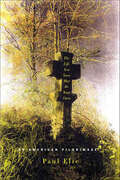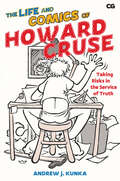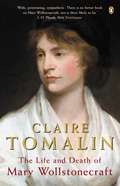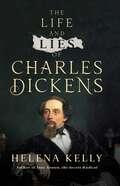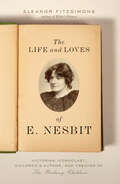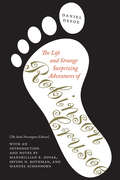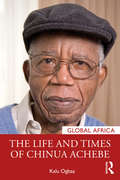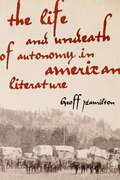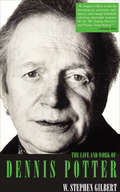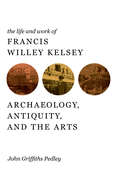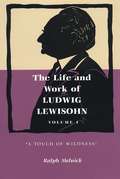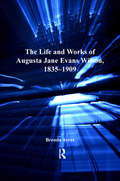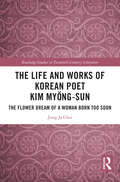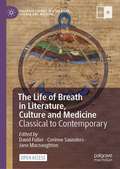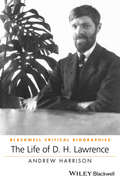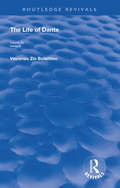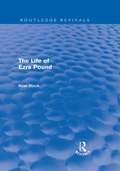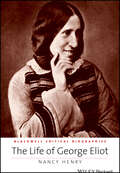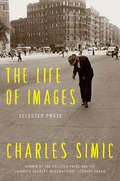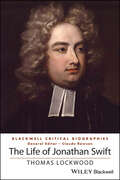- Table View
- List View
The Life You Save May Be Your Own: An American Pilgrimage
by Paul ElieA Chicago Tribune Best Book of the Year: “A fascinating multiple biography of four of the most influential Catholic literary figures of the 20th century.” —BooklistWinner, PEN/Martha Albrand Award for First Nonfiction * Finalist, National Book Critics Circle Award * An Atlantic Monthly Book of the Year * A San Francisco Chronicle Best Book of the Year * A San Jose Mercury News Top Book of the YearThomas Merton was a Trappist monk in Kentucky; Dorothy Day the founder of the Catholic Worker movement in New York; Flannery O’Connor a “Christ-haunted” literary prodigy in Georgia; Walker Percy a doctor in New Orleans who quit medicine to write fiction and philosophy. In the mid-twentieth century, these four American Catholics came to believe that the best way to explore the questions of religious faith was to write about them, in works that readers of all kinds could admire. A friend came up with a name for them—the School of the Holy Ghost—and for three decades they exchanged letters, ardently read one another’s books, and grappled with what one of them called a “predicament shared in common.”A pilgrimage is a journey taken in light of a story; and in The Life You Save May Be Your Own, Paul Elie tells these writers’ story as a pilgrimage from the God-obsessed literary past of Dante and Dostoevsky out into the thrilling chaos of postwar American life. It is a story of how the Catholic faith, in their vision of things, took on forms the faithful could not have anticipated. And it is a story about the ways we look to great books and writers to help us make sense of our experience, about the power of literature to change—to save—our lives.“Reminds us of what it means to live authentically in a world that seems determined to dull our senses and our intellect and our spirits with doublespeak, nonsense, meaningless distraction.” —Alice McDermott, Commonweal“Lucid, humane, poignant, and wise. As a work of the spirit, it is universal and in no way sectarian.” —Harold Bloom“[An] engrossing, smartly conceived and perfectly realized work.” —Tom Nolan, San Francisco Chronicle“An elegant, intelligent blend of biography and literary criticism.” —Ben Lytal, Atlanta Journal-Constitution
The Life and Comics of Howard Cruse: Taking Risks in the Service of Truth (Critical Graphics)
by Andrew J. KunkaThe Life and Comics of Howard Cruse tells the remarkable story of how a self-described “preacher’s kid” from Birmingham, Alabama, became the so-called “Godfather of Gay Comics.” This study showcases a remarkable fifty-year career that included working in the 1970s underground comics scene, becoming founding editor of the groundbreaking anthology series Gay Comix, and publishing the graphic novel Stuck Rubber Baby, partially based on his own experience of coming of age in the Civil Rights era. Through his exploration of Cruse’s life and work, Andrew J. Kunka also chronicles the dramatic ways that gay culture changed over the course of Cruse’s lifetime, from Cold War-era homophobia to the gay liberation movement to the AIDS crisis to the legalization of gay marriage. Highlighting Cruse’s skills as a trenchant satirist and social commentator, Kunka explores how he cast a queer look at American politics, mainstream comics culture, and the gay community’s own norms. Lavishly illustrated with a broad selection of comics from Cruse’s career, this study serves as a perfect introduction to this pioneering cartoonist, as well as an insightful read for fans who already love how his work sketched a new vision of gay life.
The Life and Death of Mary Wollstonecraft
by Claire TomalinThe Life and Death of Mary Wollstonecraft is the acclaimed bestselling biography by Claire TomalinWinner of the Whitbread First Book PrizeWitty, courageous and unconventional, Mary Wollstonecraft was one of the most controversial figures of her day. She published A Vindication of the Rights of Women; travelled to revolutionary France and lived through the Terror and the destruction of the incipient French feminist movement; produced an illegitimate daughter; and married William Godwin before dying in childbed at the age of thirty-eight. Often embattled and bitterly disappointed, she never gave up her radical ideas or her belief that courage and honesty would triumph over convention.'Tomalin is a most intelligent and sympathetic biographer, aware of her impetuous subject's many failings, yet with the perception to present her greatness fairly. She writes well and wittily' Daily Telegraph'A vivid evocation not only of what Mary went through but also of how women lived in the second part of the eighteenth century. Most of all, however, Tomalin makes Mary Wollstonecraft unforgettable' Evening StandardFrom the acclaimed author of Samuel Pepys: The Unequalled Self, Charles Dickens: A Life and The Invisible Woman, this celebrated biography is the definitive account of Mary Wollstonecraft's life.Claire Tomalin is the award-winning author of eight highly acclaimed biographies, including: The Life and Death of Mary Wollstonecraft; Shelley and His World; Katherine Mansfield: A Secret Life; The Invisible Woman: The Story of Nelly Ternan and Charles Dickens; Mrs Jordan's Profession; Jane Austen: A Life; Samuel Pepys: The Unequalled Self; Thomas Hardy: The Time-Torn Man and, most recently, Charles Dickens: A Life. A former literary editor of the New Statesman and the Sunday Times, she is married to the playwright and novelist Michael Frayn.
The Life and Letters of William Sharp and "Fiona Macleod". Volume 2: 1895-1899
by William F. HalloranWilliam Sharp (1855-1905) conducted one of the most audacious literary deceptions of his or any time. Sharp was a Scottish poet, novelist, biographer and editor who in 1893 began to write critically and commercially successful books under the name Fiona Macleod. This was far more than just a pseudonym: he corresponded as Macleod, enlisting his sister to provide the handwriting and address, and for more than a decade "Fiona Macleod" duped not only the general public but such literary luminaries as William Butler Yeats and, in America, E. C. Stedman. <p><p> Sharp wrote "I feel another self within me now more than ever; it is as if I were possessed by a spirit who must speak out". This three-volume collection brings together Sharp’s own correspondence – a fascinating trove in its own right, by a Victorian man of letters who was on intimate terms with writers including Dante Gabriel Rossetti, Walter Pater, and George Meredith – and the Fiona Macleod letters, which bring to life Sharp’s intriguing "second self". <p> With an introduction and detailed notes by William F. Halloran, this richly rewarding collection offers a wonderful insight into the literary landscape of the time, while also investigating a strange and underappreciated phenomenon of late-nineteenth-century English literature. It is essential for scholars of the period, and it is an illuminating read for anyone interested in authorship and identity.
The Life and Lies of Charles Dickens
by Helena KellyA radical reassessment of the famed Victorian author, revealing the true story behind the creator of some of literature's best-known novels.This dynamic new study of Charles Dickens will make readers re-examine his life and work in a completely different light. First, partly due to the massive digitalization of papers and letters in recent years, Helena Kelly has unearthed new material about Dickens that simply wasn't available to his earlier biographers. Second, in an astonishing piece of archival detective work, she has traced and then joined the dots on revelatory new details about his mental and physical health that, as the reader will discover, had a strong bearing on both his writing and his life and eventual death. Together these have allowed her to come up with a striking hypothesis that the version of his life that Dickens chose to share with his public—both during his lifetime and from beyond the grave in the authorized biography published shortly after his death—was an elaborate exercise in reputation management. Many of the supposed formative events in his life—such as the twelve-year-old Dickens going to work in a blacking factory—may not have been quite as honestly-related as we have been led to believe. And, in many respects, who can blame him? Dickens's celebrity was on a scale almost unimaginable to any author writing today, with the possible exception of J. K. Rowling, and, like many people who become suddenly famous, he soon realized what a mixed blessing it was.
The Life and Loves of E. Nesbit: Victorian Iconoclast, Children's Author, and Creator of The Railway Children
by Eleanor FitzsimonsA Sunday Times Best Book of the Year: The “informative and entertaining” first major biography of the trailblazing, controversial children’s author (The Washington Post).Born in 1858, Edith Nesbit is today considered the first modern writer for children and the inventor of the children’s adventure story. In The Life and Loves of E. Nesbit, award-winning biographer Eleanor Fitzsimons uncovers the little-known details of her life, introducing readers to the Fabian Society cofounder and fabulous socialite who hosted legendary parties and had admirers by the dozen, including George Bernard Shaw. Through Nesbit’s letters and archival research, Fitzsimons reveals “E.” to have been a prolific lecturer and writer on socialism and shows how Nesbit incorporated these ideas into her writing, thereby influencing a generation of children—an aspect of her literary legacy never before examined. Fitzsimons’s riveting biography brings new light to the life and works of this remarkable writer and woman. “Meticulous and invaluable…exceptionally illuminating and detailed.” —The Wall Street Journal“Fitzsimons handily reassembles the hundreds of intricate, idiosyncratic parts of the miraculous E. Nesbit machine.” —The New York Times Book Review“I’ve always loved the work of E. Nesbit—The Railway Children and Five Children and It are my favorites—but I knew nothing about the extraordinary, surprising life of this great figure in children’s literature . . . so gripping that I read [it] in two days.” —Gretchen Rubin, #1 New York Times-bestsellingauthor of The Happiness Project“A charming, lively, and old-fashioned biography . . . highly readable.” —Publishers Weekly“A terrific book.” —Neil Gaiman
The Life and Strange Surprizing Adventures of Robinson Crusoe: The Stoke Newington Edition
by Daniel DefoeRobinson Crusoe, an adventure tale that fascinated such thinkers as Jean-Jacques Rousseau, Karl Marx, Virginia Woolf, and J. M. Coetzee, has been an international best-seller for three hundred years. An adventure tale involving cannibals, pirates, and shipwrecks, it embodies economic, social, political, and philosophical themes that continue to be relevant today. Moreover, the notion of isolation on a deserted island and a fascination with survival continue to be central to countless popular cinema and television programs. This edition of the novel with its introduction, line notes, and full bibliographical notes provides a uniquely scholarly presentation of the novel. There has been no other edition like it. Published by Bucknell University Press. Distributed worldwide by Rutgers University Press.
The Life and Times of Chinua Achebe (Global Africa)
by Kalu OgbaaThe Life and Times of Chinua Achebe introduces readers to the life, literary works, and times of arguably the most widely-read African novelist of recent times, an icon, both in continental Africa and abroad. The book weaves together the story of Chinua Achebe, a young Igboman whose novel Things Fall Apart opened the eyes of the world to a more realistic image of Africa that was warped by generations of European travelers, colonists, and writers. Whilst continuing to write further influential novels and essays, Achebe also taught other African writers to use their skills to help their national leaders to fight for their freedoms in the post-colonial era, as internal warfare compounded the damage caused by European powers during the colonial era. In this book Kalu Ogbaa, an esteemed expert on Achebe and his works, draws on extensive research and personal interviews with the great man and his colleagues and friends, to tell the story of Achebe and his work. This intimate and powerful new biography will be essential reading for students and scholars of Chinua Achebe, and to anyone with an interest in the literature and post-colonial politics of Africa.
The Life and Undeath of Autonomy in American Literature
by Geoff HamiltonIn The Life and Undeath of Autonomy in American Literature, Geoff Hamilton charts the evolution of the fundamental concept of autonomy in the American imaginary across the span of the nation’s literary history. Whereas America’s ideological roots are typically examined in relation to Enlightenment Europe, this book traces the American literary representation of autonomy back to its pastoral, political, and ultimately religious origins in ancient Greek thought. Tracking autonomy’s evolution in America from the Declaration of Independence to contemporary works, Hamilton considers affinities between American and Greek literary characters—Natty Bumppo and Odysseus, Emerson’s "poet" and Socrates, Cormac McCarthy’s Judge Holden and Callicles—and reveals both what American literary history has in common with that of ancient Greece and what is distinctively its own.The author argues for the link with antiquity not only to understand better the boundaries between self and society but also to show profound transitions in the understanding of autonomy from a nourishing liberty of fulfillment, through an aggressive agency destructive to both human and natural worlds, to a sterile isolation and detachment. The result is an insightful analysis of the history of individualism, the evolution of frontier mythology and American Romanticism, and the contemporary representation of social alienation and violent criminality.
The Life and Work of Dennis Potter: The Life And Work Of Dennis Potter
by W. Stephen GilbertThe first critical biography of the innovative television writer whose off-kilter creations helped spark the Golden Age of modern television. TV writer Dennis Potter is widely credited with revolutionizing television. The innovative shows he created for the BBC, including The Singing Detective and Pennies from Heaven, trailblazed new paths for genre-bending entertainment and demonstrated the creative possibilities of episodic television. Potter also adapted both of those shows into critically acclaimed major motion pictures: Pennies from Heaven starring Steve Martin, and The Singing Detective starring Robert Downey Jr. In The Life and Work of Dennis Potter, W. Stephen Gilbert analyzes Potter&’s impressive body of work, emphasizing the dramatic interplay between his life and the medium he loved. At the age of twenty-four, Potter was diagnosed with psoriatic arthopathy, a rare debilitating skin disease whose horrors he portrayed with biting black humor through his alter ego, the character Michael Gambon in The Singing Detective. Gilber traces Potter&’s career from its beginnings to his astonishing final interview to Melvyn Bragg, weeks before his death. Unforgettable for its honesty about life, work, and dying, the result was yet another gripping piece of television—and quintessential Dennis Potter. &“[T]he late dramatist&’s influence can be seen in many places, from Twin Peaks to Mrs. Brown&’s Boys.&” —The Guardian &“Gilbert recalls the lacerating wit, passionate intelligence, and courage behind the television playwright responsible for The Singing Detective and Pennies from Heaven.&” —Vanity Fair
The Life and Work of Francis Willey Kelsey: Archaeology, Antiquity, and the Arts
by John Griffiths PedleyPresident of the Archaeological Institute of America, professor at the University of Michigan from 1889 to 1927, and president of the American Philological Association, Francis Kelsey was crucially involved in the founding or growth of major educational institutions. He came to maturity in a period of great technological change in communications, transportation, and manufacturing. Kelsey took full advantage of such innovations in his ceaseless drive to promote education for all, to further the expansion of knowledge, and to champion the benefits of the study of antiquity. A vigorous traveler around the United States, Europe, and the Mediterranean, Kelsey strongly believed in the value of personally viewing sites ancient and modern and collecting artifacts that could be used by the new museums and universities that were springing up in the United States. This collecting habit put him in touch with major financiers of the day, including Charles Freer, Andrew Carnegie, and J. P. Morgan, as he sought their help for important projects. Drawing heavily on Kelsey's daily diaries now held at the University of Michigan's Bentley Historical Library, John Griffiths Pedley gives us a biography that records the wide-ranging activities of a gifted and energetic scholar whose achievements mirrored the creative and contributive innovations of his contemporary Americans.
The Life and Work of Ludwig Lewisohn: Volume 1: "A Touch of Wildness"
by Dr Ralph MelnickAn imposing literary figure in America and Europe during the first half of the twentieth century, Ludwig Lewisohn (1882-1955) struggled with feelings of alienation in Christian America that were gradually resolved by his developing Jewish identity, a process reflected in hundreds of works of fiction, literary analysis, and social criticism. <P><P> A friend and associate of Sinclair Lewis, James Joyce, Thomas Mann, Paul Robeson, Edward G. Robinson, Theodore Dreiser, H. L. Mencken, Stephen Wise, Maurice Samuel, and a host of others, Lewisohn impacted the intellectual, cultural, religious, and political worlds of two continents. <P><P> This first volume, chronicling his life until 1934, is followed by a second volume that portrays Lewisohn's last decades as an outspoken opponent of Nazi Germany, a leading promoter of Jewish rescue and resettlement in Palestine, a member of Brandeis University's first faculty, and one of the earliest voices advocating Jewish renewal in America. <P><P> Born in Berlin, Lewisohn moved with his family in 1890 to South Carolina. Identified by others as a Jew, he remained an outsider throughout his youth. As a graduate student at Columbia University, warnings that a Jew could not secure a position teaching English forced him to abandon his studies. The Broken Snare (1908), Lewisohn's story of a young woman's acceptance of her deepest thoughts and desires, paralleled his own reaction to this isolation. Attacking the social mores of his age, the novel was judged as scandalous by critics. <P><P> In time Lewisohn became a notable scholar and translator of German and French literature, teaching at Wisconsin and Ohio State. Following his mother's death in 1914, he began to explore the Jewish life he had rejected, and by 1920 became a Zionist committed to fighting assimilation. Accusatory and inflammatory, his memoir Up Stream (1922) struck at the very heart of American culture and society, and caused great controversy and lasting enmity. <P><P> As strong emotional influences, the women in Lewisohn's life-his mother and four wives-helped to frame his life and work. Believing himself liberated by the woman he declared his "spiritual wife" while legally married to another, he proclaimed the artist's right to freedom in The Creative Life (1924), abandoned his editorship at The Nation, and fled to Europe. Lewisohn's fictionalized account of his failed marriage, The Case of Mr. Crump (1926), once again attacked the empty morality of this world and won Sigmund Freud's praise as the greatest psychological novel of the century. <P><P> A creator of one of Paris's leading salons, Lewisohn ended his leisurely writer's life in 1934 to awaken America to the growing Nazi threat. Poised to face the unfinished marital battle at home, but anxious to engage in the coming struggle for Jewish survival and the future of Western civilization, he set sail, unsure of what lay ahead.
The Life and Works of Augusta Jane Evans Wilson, 1835-1909
by Brenda AyresOver the course of her 57-year career, Augusta Jane Evans Wilson published nine best-selling novels, but her significant contributions to American literature have until recently gone largely unrecognized. Brenda Ayres, in her long overdue critical biography of the novelist once referred to as the 'first Southern woman to enter the field of American letters,' credits the importance of Wilson's novels for their portrait of nineteenth-century America. As Ayres reminds us, the nineteenth-century American book market was dominated by women writers and women readers, a fact still to some extent obscured by the make-up of the literary canon. In placing Wilson's novels firmly within their historical context, Ayres commemorates Wilson as both a storyteller and maker of American history. Proceeding chronologically, Ayres devotes a chapter to each of Wilson's novels, showing how her views on Catholicism, the South, the Civil War, male authority, domesticity, Reconstruction, and race were both informed by and resistant to the turbulent times in which she lived. This comprehensive and meticulously researched biography contributes not only to our appreciation of Wilson's work, but also to her importance as a figure for understanding women's roles in history and their art, evolving gender roles, and the complicated status of women writers.
The Life and Works of Korean Poet Kim Myŏng-sun: The Flower Dream of a Woman Born Too Soon (Routledge Studies in Twentieth-Century Literature)
by Jung Ja ChoiThe Life and Works of Korean Poet Kim Myŏng-sun offers an introduction to Korea’s first modern woman writer to publish a collection of creative works, Kim Myŏng-sun (1896–ca. 1954). Despite attempts by male contemporaries to assassinate her character, Kim was an outspoken writer and an early feminist, confronting patriarchal Korean society in essays, plays, poems, and short stories. This volume is the first to offer a detailed analysis in English of Kim’s poetry. The poems examined in this volume can be considered early twentieth-century versions of #MeToo literature, mirroring the harrowing account of her sexual assault, and also subversive challenges to traditional institutions, dealing with themes such as romantic free love, same-sex love, single womanhood, and explicit female desire and passion. The Life and Works of Korean Poet Kim Myŏng-sun restores a long-neglected woman writer to her rightful place in the history of Korean literature, shedding light on the complexity of women’s lives in Korea and contributing to the growing interest in modern Korean women’s literature in the West.
The Life of Breath in Literature, Culture and Medicine: Classical to Contemporary (Palgrave Studies in Literature, Science and Medicine)
by David Fuller Jane Macnaughton Corinne SaundersThis open access book studies breath and breathing in literature and culture and provides crucial insights into the history of medicine, health and the emotions, the foundations of beliefs concerning body, spirit and world, the connections between breath and creativity and the phenomenology of breath and breathlessness. Contributions span the classical, medieval, early modern, Romantic, Victorian, modern and contemporary periods, drawing on medical writings, philosophy, theology and the visual arts as well as on literary, historical and cultural studies. The collection illustrates the complex significance and symbolic power of breath and breathlessness across time: breath is written deeply into ideas of nature, spirituality, emotion, creativity and being, and is inextricable from notions of consciousness, spirit, inspiration, voice, feeling, freedom and movement. The volume also demonstrates the long-standing connections between breath and place, politics and aesthetics, illuminating both contrasts and continuities.
The Life of D. H. Lawrence: A Critical Biography (Wiley Blackwell Critical Biographies)
by Andrew HarrisonComplete with fresh perspectives, and drawing on the latest scholarship and biographical sources, The Life of D. H. Lawrence spans the full range of his intellectual interests and creative output to offer new insights into Lawrence’s life, work, and legacy. Addresses his major works, but also lesser-known writings in different genres and his late paintings, in order to reassess the innovative, challenging, and subversive aspects of Lawrence’s personality and writing Incorporates newly-discovered sources, including correspondence, a manuscript written in 1923-4, new evidence for important influences on his major novels and two previously unpublished images of the author Emphasizes Lawrence’s gregarious nature, his desire to collaborate with others, and his adaptability to different social situations Pays particular attention to the many interactions with literary advisors, editors, agents, publishers, and printers that were required for him to work as a professional writer Combines new material with astute commentary to provide a nuanced understanding of one of the most prolific and controversial authors of the twentieth century
The Life of Dante (Routledge Revivals)
by Giovanni BoccaccioPublished in 1990: This book tells the life story of Dante, the poet and his work.
The Life of Ezra Pound (Routledge Revivals)
by Noel StockFirst published in 1970, this is a detailed and balanced biography of one of the most controversial literary figures of the twentieth century. Ezra Pound, an American who left home for Venice and London at the age of twenty-three, was a leading member of ‘the modern movement’, a friend and helper of Joyce, Eliot, Yeats, Hemingway, an early supporter of Lawrence and Frost. As a critic of modern society his far-reaching and controversial theories on politics, economics and religion led him to broadcast over Rome Radio during the Second World War, after which he was indicted for treason but declared insane by an American court. He then spent more than twelve years in St Elizabeth’s Hospital for the Criminally Insane in Washington, D.C. In 1958 the changes against him were dropped and he returned to Italy where he had lived between 1924 and 1945.
The Life of George Eliot
by Nancy HenryThe life story of the Victorian novelist George Eliot is as dramatic and complex as her best plots. This new assessment of her life and work combines recent biographical research with penetrating literary criticism, resulting in revealing new interpretations of her literary work. A fresh look at George Eliot's captivating life storyIncludes original new analysis of her writingDeploys the latest biographical researchCombines literary criticism with biographical narrative to offer a rounded perspective
The Life of George Eliot: A Critical Biography (Wiley Blackwell Critical Biographies #12)
by Nancy HenryThe life story of the Victorian novelist George Eliot is as dramatic and complex as her best plots. This new assessment of her life and work combines recent biographical research with penetrating literary criticism, resulting in revealing new interpretations of her literary work. A fresh look at George Eliot's captivating life story Includes original new analysis of her writing Deploys the latest biographical research Combines literary criticism with biographical narrative to offer a rounded perspective
The Life of Images
by Charles SimicA collection of new and selected essays by the Pulitzer Prize winner and former poet laureateIn addition to being one of America's most famous and commended poets, Charles Simic is a prolific and talented essayist. The Life of Images brings together his best prose work written over twenty-five years.A blend of the thoughtful, comic, and tragic, the essays in The Life of Images explore subjects ranging from poetry to philosophy, photography, politics, and art, to Simic's childhood in a war-torn country. Culled from five collections, these works demonstrate the qualities that make Simic's poetry so original yet accessible. Whether he is pondering the relationship between history and the individual, or recalling growing up in Belgrade and New York City, Simic shares his distinctive take on the world and offers an intimate look into the life and mind of an immigrant.
The Life of John Bunyan
by Edmund VenablesJohn Bunyan was an English 17th century Christian writer and preacher. He is best known for his allegory The Pilgrims Progress. Bunyan wrote this book while being imprisoned for preaching without a license. This confinement lasted 12 years. In his autobiographical book, Grace Abounding, Bunyan describes himself as having led an abandoned life in his youth, and as having been morally reprehensible as a result. After contemplating his acts as a youth he became a Baptist. In 1655 he became a church deacon and began preaching. His biography is an excellent historical look at the changing views in religion in the 17th century.
The Life of Jonathan Swift (Wiley Blackwell Critical Biographies)
by Thomas LockwoodPresents a fresh account of the life history and creative imagination of Jonathan Swift Classic satires such as Gulliver’s Travels, A Modest Proposal, and A Tale of a Tub express radical positions, yet were written by the most conservative of men. Jonathan Swift was born in Dublin and spent most of his life in Ireland, never traveling outside the British Isles. An Anglo-Irish Protestant clergyman, he was a major political and religious figure whose career was primarily clerical, not literary. Although much is known about Swift, in many ways he remains an enigma. He was admired as an Irish patriot yet was contemptuous of the Irish. He was both secretive and self-dramatizing. His talent for friendship was matched by his skill for making enemies. He hated the English but yearned to live in England. The Life of Jonathan Swift explores the writing life and personal history of the foremost satirist in the English language. Accessible and engaging, this critical biography brings Swift’s writing and creative sensibility into the narrative of his life. Author Thomas Lockwood provides the historical and modern critical context of Swift’s prose satires and poetry, as well as his political journalism, essays, manuscripts, and personal correspondence. Throughout the book, biographically contextualized descriptions of Swift’s most famous works help readers better understand both the writing and the writer. Provides critical profiles of Gulliver’s Travels, An Argument Against Abolishing Christianity, Drapier’s Letters, and Swift’s other famous works Offers insights into Swift’s relationships with Esther Johnson, “Stella,” and Esther Vanhomrigh, “Vanessa” Highlights Swift’s poetry and how verse writing was a vital part of his creative being Summarizes and contextualizes lesser-known works such as The Conduct of the Allies Addresses the historic critical bias against comedy or satire as inferior forms of art, both in Swift’s lifetime and the presentThe Life of Jonathan Swift is an essential resource for general readers of literature and literary biography, university instructors and researchers, and undergraduate students taking courses in English literature.
